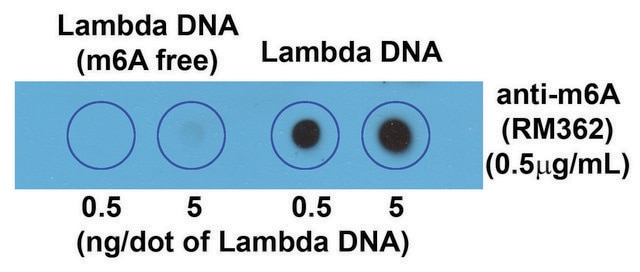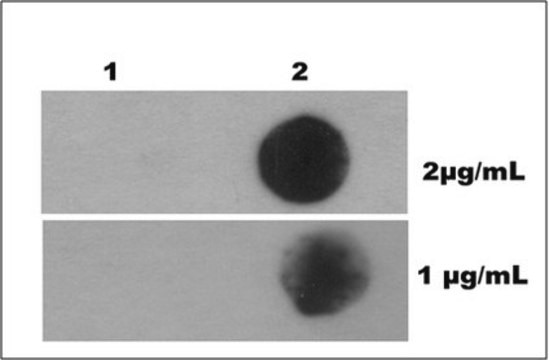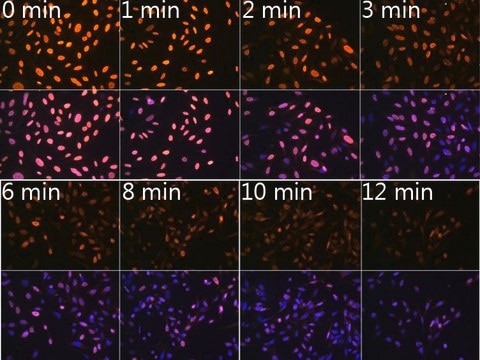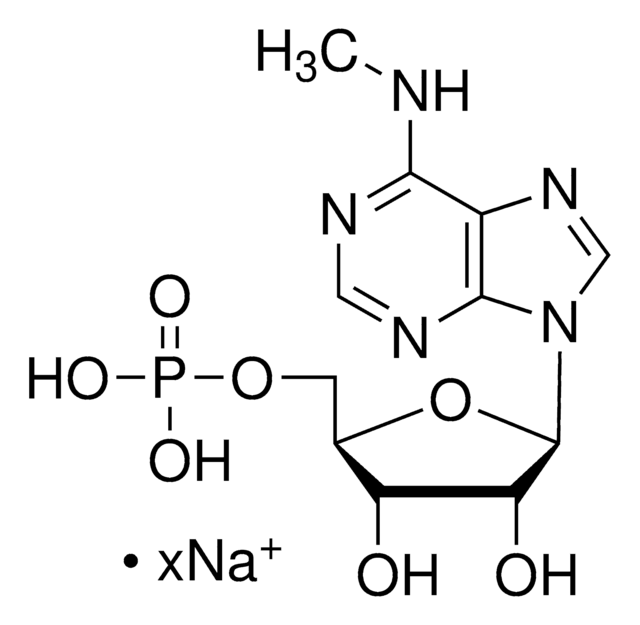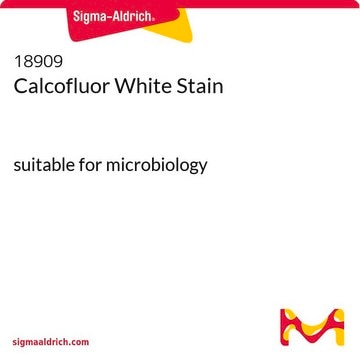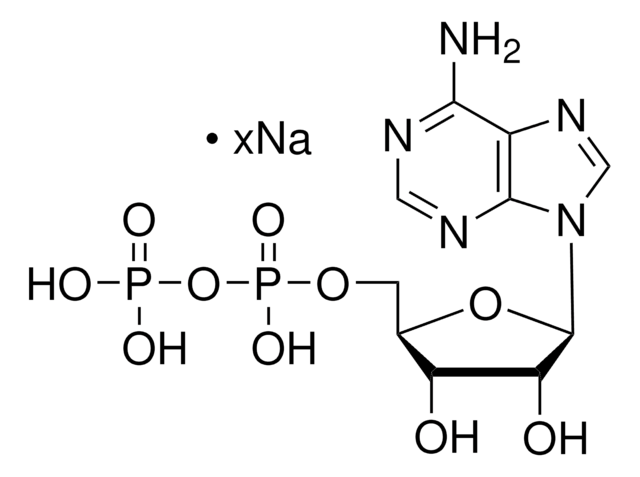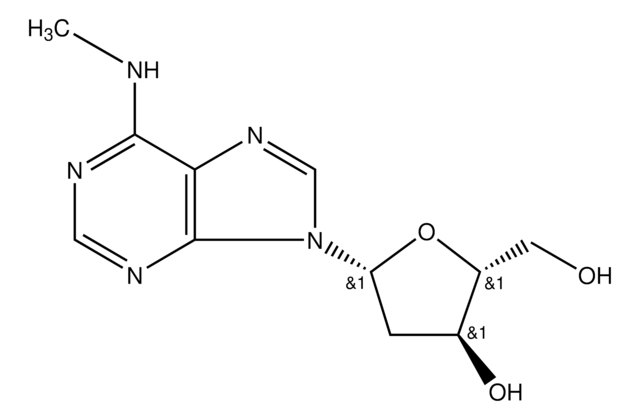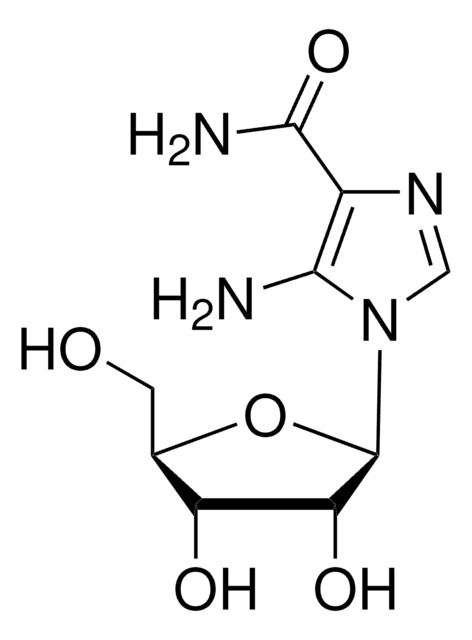General description
We are committed to bringing you greener alternative products, which adhere to one or more of The 12 Principles of Green Chemistry.This antibody is Preservative-free, produced without the harm or sacrifice of animals and exceptionally stable to allow for ambient shipping and storage if needed and thus aligns with "Waste Prevention", "Designing Safer Chemicals" and "Design for Energy Efficiency".
Click here for more information.
ZooMAb® antibodies represent an entirely new generation of recombinant monoclonal antibodies.Each ZooMAb® antibody is manufactured using our proprietary recombinant expression system, purified to homogeneity, and precisely dispensed to produce robust and highly reproducible lot-to-lot consistency. Only top-performing clones are released for use by researchers. Each antibody is validated for high specificity and affinity across multiple applications, including its most commonly used application. ZooMAb® antibodies are reliably available and ready to ship when you need them.
Specificity
Clone 17-3-4-1 is a ZooMAb® Mouse recombinant monoclonal antibody that specifically detects N6-methyladenosine in proteins.
Immunogen
BSA-conjugated N6-methyladenosine.
Application
Quality Control Testing
Evaluated by DOT blot analysis with RNA oligos with m6A modification.
Dot Blot Analysis (DB): A 1:1,000 dilution of this antibody detected N6-methyladenosine in RNA oligos with m6A modification.
Tested Applications
Flow Cytometry Analysis: Flow Cytometry Analysis (FC): 1 µg of this antibody detected m6A in U2OS cells treated with 10 M BrdU, 24-28 h prior to UV-C treatment.
Immunocytochemistry Analysis: Immunocytochemistry Analysis (ICC): A 1:100 Dilution of this antibody detected m6A in U2OS cells treated with 10 M BrdU, 24-28 h prior to UV-C treatment.
Note: Actual optimal working dilutions must be determined by end user as specimens, and experimental conditions may vary with the end user.
Target description
N6-methyladenosine (m6A), or methylation of the N6 position of adenosine is one of the most abundant post-transcriptional, reversible modification of RNA. m6A is not only an RNA marker, but also a genomic DNA marker (m6dA) that is detected in prokaryotes and lower eukaryotes. In higher eukaryotes, m6dA levels are abundant during embryogenesis and significantly decrease in adult tissues. It is a developmentally regulated RNA modification that is dynamically modified. The m6A modification is an important physiological regulator involved in cell renewal and differentiation and may function in post-transcriptional fine-tuning of gene expression and may provide a faster means of maximizing gene expression. It is shown to exhibit tissue-specific regulation and is reported to be elevated throughout brain development. The methylation of adenosine is catalyzed by a multicomponent complex that is composed of METTL3/MT-A70, METTL14, and WTAP in mammals. METTL3 and METTL14 are responsible for the methyltransferase activity of the complex, and WTAP mediates substrate recruitment. Fat mass and obesity-associated (FTO) and ALKBH5 are two identified demethylases that are reported to catalyze oxidative de-methylation of m6A. These enzymes work in a cooperative manner to maintain the balance of intracellular m6A levels. It has been shown that m6A writers that consist of the methyltransferase complex catalyze this modification positively and it is reversed by m6A erasers with demethylase activity. This ZooMAb® recombinant monoclonal antibody, generated by our propriety technology, offers significantly enhanced specificity, affinity, reproducibility, and stability over conventional monoclonals. (Ref.: Meyer, KD., et al. (2012). Cell. 149(7):1635-1646).
Physical form
Purified recombinant mouse monoclonal antibody IgG, lyophilized in PBS with 5% Trehalose, normal appearance a coarse or translucent resin. The PBS/trehalose components in the ZooMAb formulation can have the appearance of a semi-solid (bead like gel) after lyophilization. This is a normal phenomenon. Please follow the recommended reconstitution procedure in the data sheet to dissolve the semi-solid, bead-like, gel-appearing material. The resulting antibody solution is completely stable and functional as proven by full functional testing. Contains no biocide or preservatives, such as azide, or any animal by-products. Larger pack sizes provided as multiples of 25 µL.
Reconstitution
0.3 mg/mL after reconstitution at 25 µL per vial. Please refer to guidance on suggested starting dilutions and/or titers per application and sample type.
Storage and Stability
Recommend storage of lyophilized product at 2-8°C; Before reconstitution, micro-centrifuge vials briefly to spin down material to bottom of the vial; Reconstitute each vial by adding 25 µL of filtered lab grade water or PBS; Reconstituted antibodies can be stored at 2-8°C, or -20°C for long term storage. Avoid repeated freeze-thaws.
Legal Information
ZooMAb is a registered trademark of Merck KGaA, Darmstadt, Germany
Disclaimer
Unless otherwise stated in our catalog or other company documentation accompanying the product(s), our products are intended for research use only and are not to be used for any other purpose, which includes but is not limited to, unauthorized commercial uses, in vitro diagnostic uses, ex vivo or in vivo therapeutic uses or any type of consumption or application to humans or animals.

